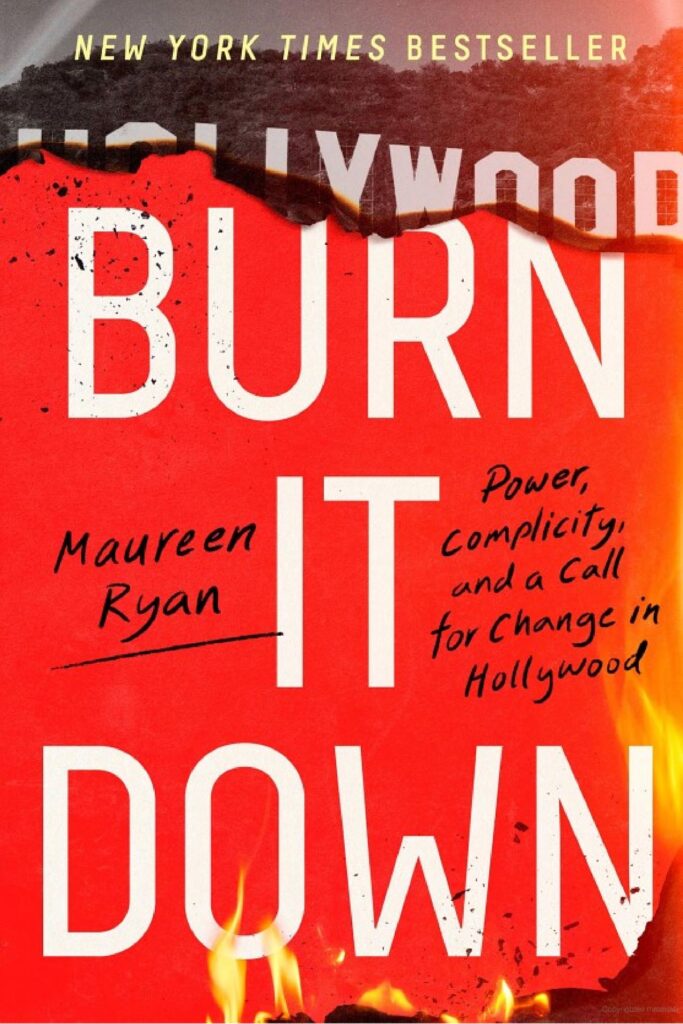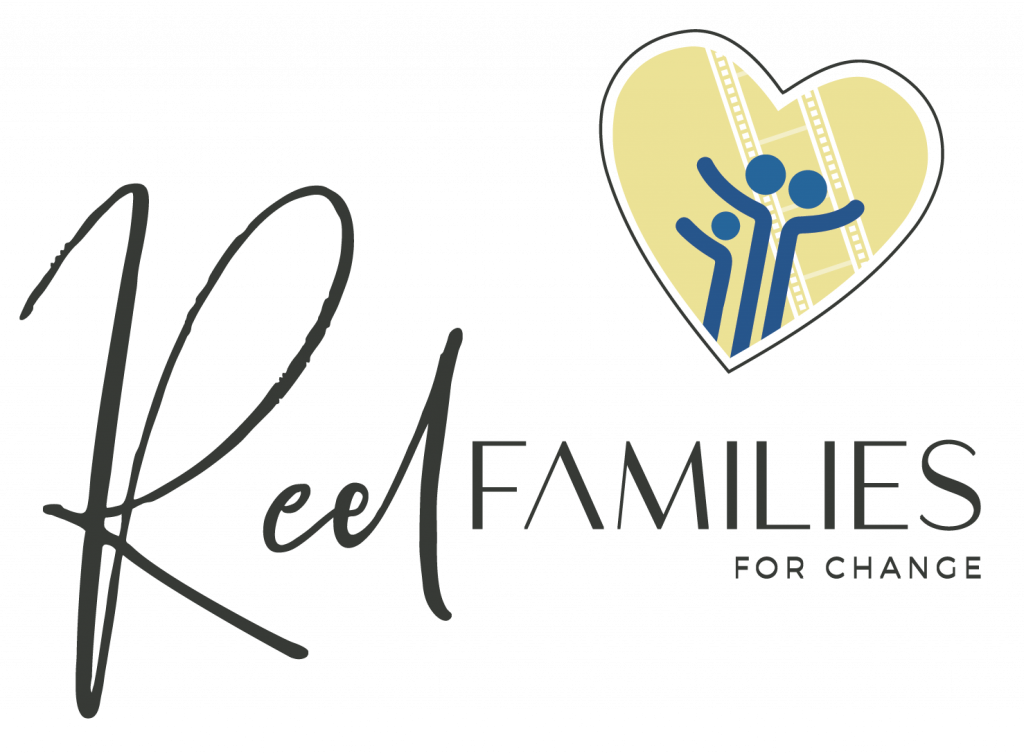Reimagining Non-Performative Transformation
the Outside-In Model
Written by Sarah Lutot
In the pursuit of a more just and equitable workforce, the responsibility transcends individual industries. In previous installments, we’ve highlighted the power of mutual trust in enacting non-performative transformation and its positive impact on not only workers but businesses as a whole. The application of change rooted in true justice has the power to bring equity to all industries, which Reel Families for Change (RFC) hopes to encourage as a crucial consideration.
As screen industry professionals with a focus on broadly applicable work-life solutions, RFC operates with the understanding that non-performative practices outside of the screen industry can foster equitable shifts within the screen industry, and vice versa. Innovative solutions created within the screen industry can inform supportive changes in other sectors, as well.

These solutions are modeled practices, which we’ve experimented and explored based on community feedback. Initially, we adopted an inside-out approach, which operates under the assumption that if we make significant improvements to the work-life infrastructure within the screen industry, those improvements will permeate the entire American workforce. This approach taught us that it’s not enough to enact systemic change within a single industry – it must be a collaborative and cross-functional effort.
This outside-in approach aims to foster a sense of collective responsibility for change and advocate for fair and equitable treatment in all workplaces, regardless of the industry.
The Framework of the Outside-in Approach
- Expanding Beyond Industry Confines: RFC’s outside-in approach means looking beyond the immediate boundaries of the film industry. Rather than solely focusing on internal issues, RFC recognizes that many of the challenges faced by workers in the film industry, such as unequal treatment, lack of job security, and demanding working conditions, are shared by a wide range of hourly, contract, and gig workers across various sectors.
- Sharing Experiences: RFC aims to bridge the gap between the film industry and other sectors by sharing the unique experiences of film workers. They understand that the distinctive working conditions encountered by film industry professionals can serve as a valuable case study for understanding broader labor issues. RFC seeks to use these experiences to shed light on the challenges faced by workers in different fields, illustrating the universal aspects of these issues.

For inspiration, we look to inclusive economy initiatives like Zillow’s robust family-friendly policies and Disney’s internal trust-building reforms as discussed at The Female Quotient’s talk at SXSW’s Equality Lounge. By advocating for policies that prioritize the well-being of workers and promote inclusivity, RFC seeks to redefine screen industry standards and foster a culture of trust and accountability.
Both outside and inside of the screen industry, we must sustain and evolve a justice-centered space. The ideal approach to non-performative transformation is truthfully neither exclusively outside-in nor inside-out; it is a cross-functional approach.
RFC Founder Akima A. Brown emphasizes a five-Rs structure:
- Reducing Harm:
In both the screen industry and beyond, establishing a justice-centered space begins with reducing harm and fostering safety. Many examples of the outside-in approach in action are found in this step. For example, Leslie Ford’s four pillars of an inclusive, just workplace:
- Flexibility: Creating expectations that allow for discretion, autonomy, and contingency planning.
- Psychological Safety: Cultivating an environment where individuals feel safe to express themselves without fear of judgment or reprisal.
- Mental Healthcare: Prioritizing resources and support systems to address the mental health needs of workers.
- Childcare/Elder Care Support: Assisting with childcare and elder care responsibilities to ensure that all employees can fully participate in the workplace without undue burden.
- Reconciliation:
Acknowledging and addressing harm is the next step toward justice-centered practices. This involves individual accountability and a willingness to make amends:
- Recognizing and taking responsibility for causing harm, even if unintentional.
- Engaging in one-on-one exchanges to express remorse and commitment to repairing the harm done.
- Restoration:
Going beyond individual reconciliation, restoration focuses on systemic change and dismantling toxic structures perpetuated by the broader system:
- Acknowledging the role in perpetuating systemic harm and committing to disassociating from it.
- Taking proactive steps to address systemic issues and create a more equitable environment for all.
- Reunion
What does it look like for us to come back together to move forward? This step includes how we progress after harm has occurred. This reunion is followed closely by the final step in this process.
- Rest and Reflection:
Finally, creating a new normal of wholeness involves reimagining collective spaces and interactions to prevent the recurrence of harm:
- Developing new norms and practices that prioritize inclusivity, accountability, and mutual respect.
- Cultivating a sense of collective responsibility for maintaining a justice-centered space and ensuring that all voices are heard and valued.
- Intentionally and objectively analyzing how all of these elements have worked throughout this process and improving it in a way that makes sense for each situation.
- Taking a pleasure activist stance; we should be able to create joy-filled infrastructures, policies, and systems without sacrificing joy in the process. The creation itself should be a joyful experience.
It is important to note that these steps can occur in a non-linear order. These steps can inform one another; however, we must be careful not to skip critical reflection pieces in an effort to get back to business as usual and keep people in comfortable ignorance. Often in the screen industry, Reunion is hammered over and over again without the work of Reduction, Reconciliation, Reconstruction, and Reflection. Harm occurs, and we immediately come back together with empty promises of change that are never fulfilled because of the lack of real prevention work done. As Maureen Ryan says in her book, Burn it Down: “When something goes wrong and someone speaks up, don’t make it about you: Fix the problem. If you fix it while demonstrating accountability, integrity, and respect, people will walk through fire for you.”

By following this framework, both within and outside the screen industry, organizations can sustain and evolve justice-centered practices that both influence and are influenced by other industries finding success. This collaboration can foster environments where all workers can thrive and contribute to a more equitable society.
Be the one to implement the principles of the Outside-In Approach to center justice in your next project. Visit reelfamilies.org/services.
Listen to Maureen Ryan’s conversation on Reel Talk: An RFC Spotlight Speaker Series





